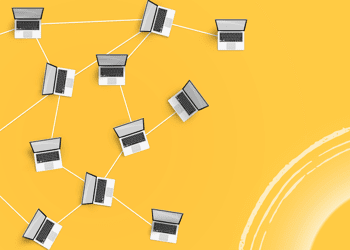Typically, when building a network and Internet infrastructure for a business, Internet speed and connectivity is of vital importance. When examining your needs, it is helpful to have an understanding of the impact of your choices and use of the “last mile” of Internet.
What is the “Last Mile” of Internet?
The “last mile” of Internet is the connection between your ISP and your business location. It is the last link in a long chain of connectivity that actually makes up the global Internet.
- Level One – huge Internet exchange points that span and connect continents.
- Level Two – Providers that connect these level one exchange points with local ISPs.
- Level Three (the Last Mile) – the portion of connection between your ISP and you.
It is this “last mile,” or last segment of the connection that has the most potential for bottlenecks and slowdowns. Congestion from traffic, differences in peering agreements, various blocking and content scanning, lack of Internet exchange points, deliberate slowdowns by ISP network management, and more all occur at the ISP level.
Internet Exchange Points
Internet Exchange Points are nodes created to shorten the routes of Internet traffic. Imagine traveling across town and back just to visit your next-door neighbor. Much Internet traffic does the same thing, unless these exchange points are in place to provide shorter routes. This makes cheaper, faster, and more efficient networking possible between local areas.
Net Neutrality
Net neutrality is the ongoing battle to keep the free flow of information possible across the global Internet. An important part of this is keeping the Internet a public utility and not a privately-owned and shared commodity. It also means keeping ISPs that control last mile access from charging fluctuating rates based on different content (Videos would cost you more than email, etc.).
Federal laws created in 2015 to protect net neutrality were repealed in 2018, leaving control of the Internet up to huge corporations who greatly benefit from practices that hurt the free Internet and everyone who uses it. More recently, several states are taking up measures to restore some measure of freedom to the Internet.
Internet Throttling
Internet throttling is when your ISP intentionally limits your internet bandwidth or speed. They may choose to do this to enforce data caps, to help deal with network congestion, or to discourage clients from using certain Internet applications in favor of their own services or channels. It is possible now due to the repeal of net neutrality measures in 2018.
How Can I Reduce the Impact of Last Mile Performance Variables?
Reducing the threats to your last mile performance can be done by using MHO Dedicated Fixed Wireless Internet service as your primary or backup Internet solution.
Carefully examine any potential ISP for fiber, cable, or satellite Internet service for your business, and evaluate what they truly provide. You should be concerned most about:
- Data caps
- Guaranteed uptime
- Hardware charges
- Installation bottlenecks
- Static IP address
- Ongoing technical support/live support
- Network security
If your employees need a constant, high-speed Internet connection, and if your clients connect with you and/or participate in eCommerce with you via the Internet, you cannot put up with deliberate slowdowns, data caps, frequent network issues, high latency, and other blocking strategies. Dedicated fixed wireless from MHO eliminates all that in favor of true high-speed, low latency, unobstructed Internet in the Last Mile.
Plus, we guarantee a fast installation, within 10 days of securing roof rights to your building, NO data caps, and an industry leading Service Level Agreement (SLA) of Enterprise Level reliability. Contact us today to see if MHO Enterprise scalable and secure fixed wireless Internet service is available in your area.




![[Infographic] Fixed Wireless: What You Need To Know](https://blog.mho.com/wp-content/uploads/2017/06/Screenshot-2025-06-24-141710.png)


